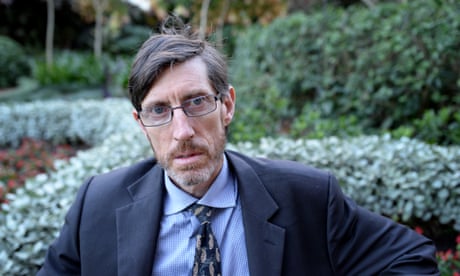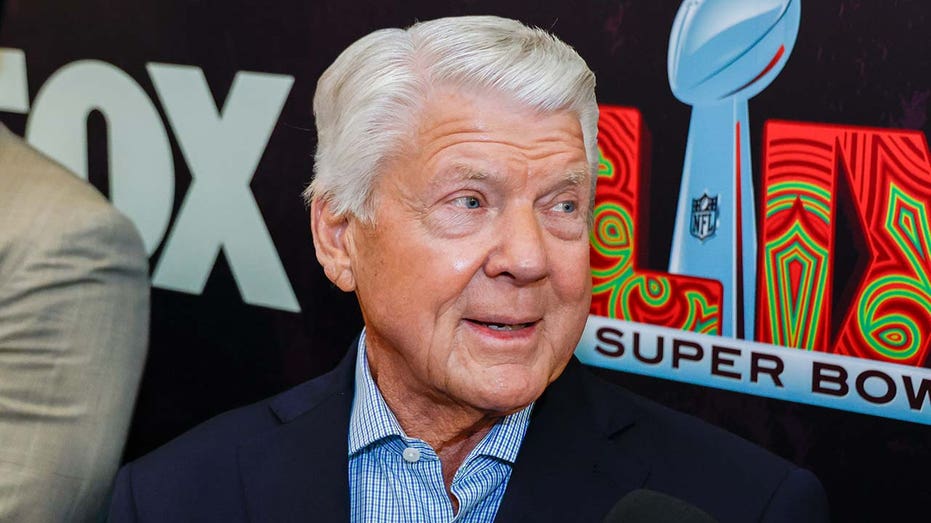- by foxnews
- 04 Mar 2025
‘He didn’t even look me in the eye’: one survivor on how George Pell chose the church over children
‘He didn’t even look me in the eye’: one survivor on how George Pell chose the church over children
- by theguardian
- 13 Jan 2023
- in news

John Ellis, in his decades-long battle for justice from the church, came to learn two things about George Pell.
The late cardinal, he says, was fiercely intelligent, and a keen strategic thinker who took a "long view of things", including threats to the church's finances.
He also possessed the compassion to recognise and understand the profound suffering of victims of clergy abuse.
"Putting those two things together, the only conclusion I can draw is that he could see that at a certain point in time there was a fork in the road there and thought: 'I can either protect the interests of the church, or I can look after survivors of abuse. I can make the church a better institution spiritually but less sustainable financially,'" Ellis says.
"Faced with that option, he has clearly taken the fork that says 'protect and promote the church'."
Ellis is in a unique position to assess Pell's character.
He suffered trauma heaped upon trauma due to the Catholic church, first as an altar boy, abused for years by a paedophile priest in Bass Hill in the 1970s, and again when he took the rare step of suing the church and Pell himself through the New South Wales courts in the 2000s.
Under Pell's leadership, the Sydney archdiocese adopted an aggressive strategy to undermine Ellis's case.
Despite internally accepting that Ellis was abused, holding clear independent evidence supporting his allegations and knowing of other complaints made about the same priest, the archdiocese fought his claim tooth and nail, attacking his credibility and doing everything in its power to thwart the civil action.
Its strategy, Ellis says, was to keep the floodgates firmly shut to other survivors who might follow him by eschewing the church's pitiful compensation process and turning to the courts for justice.
He says Pell balanced the long-term risk to the church's finances with the suffering of abuse survivors, and chose to protect the former.
The church won. In 2007, the NSW court of appeal ruled the church, as an unincorporated association which held its assets in a protected trust, did not legally exist and could not be sued.
The argument became known as the Ellis defence. It was used for years by the church to shirk responsibility for the abuse of children by their clergy, until it was finally scrapped in 2019.
At the time, Ellis didn't see Pell as the driving force behind the strategy. That all changed in the royal commission, which forensically investigated the church's strategy in the Ellis case and Pell's role in shaping it.
"It was only really through that [hearing] that I began to see how central Pell himself was for that whole process," Ellis says.
"The evidence seemed to be pretty clear that you know he was the person - he wasn't just the figurehead, and the person whose name had to be on the court documents and was the nominal defendant, so to speak. He was the person who was driving the whole policy and it definitely was a specific strategy that had the aim of discouraging people from making claims against the church."
In 2014, during Pell's evidence to the royal commission, he offered a public apology to Ellis for his treatment.
"As former archbishop and speaking personally, I would want to say to Mr Ellis that we failed in many ways, some way inadvertently, in our moral and pastoral responsibilities to him," Pell said.
"I want to acknowledge his suffering and the impact of this terrible affair on his life. As the then archbishop, I have to take ultimate responsibility, and this I do."
At the time, a reporter asked Ellis what he made of the apology. He replied it was "surprising" but that he needed time to reflect on it.
Eight years later, Ellis views the apology as a "very controlled and contrived, orchestrated event".
Pell, he says, didn't even look at him.
"Here was an opportunity to do something that involved a personal engagement with personal acceptance of accountability and to look me in the eye, to engage, and say, 'I was wrong, we've made some terrible mistakes and they harmed you awfully, and we just can't apologise enough for that,'" Ellis says.
"Even though that was orchestrated as a personal apology, so he could tick the box and say, 'I've apologised to John Ellis,' he didn't even look me in the eye, didn't even look towards me while he was giving that apology."
Ellis had met personally with Pell before the royal commission to discuss his abuse.
He says he suspected that, somewhere within himself, Pell wanted to do more for survivors.
"I always sensed that that he, sort of, came to the edge and peered over it imperiously, and decided: 'Well, now, I'm not going there,'" Ellis says. "There was this line that he wouldn't cross."
Ellis never felt any warmth from Pell during their encounters. He has committed to keeping their conversations private, and is still abiding by that promise, saying only that the meetings were "unsatisfactory".
"And I think that reflects that divide. There was a decision made, there was a strategy he was pursuing, and he wasn't prepared to depart from that."
Ellis has practised law for more than 25 years.
His firm, Ellis Legal, has helped countless abuse survivors achieve justice through the courts, something the archdiocese, led by Pell, prevented him from doing.
From his perspective as a survivor, lawyer and advocate, Ellis says any achievement Pell made in furthering the church's financial interests was overshadowed by his legacy on protecting children and safeguarding the spiritual wellbeing of the church.
"On that aspect he's obviously failed dramatically," he said.
- by foxnews
- descember 09, 2016
Bus travel sees 'steady growth' as flyers seek alternative transportation
People who ride on airplanes might rely on alternative transportation for a number of reasons. A CEO of a bus travel company shares insights with Fox News Digital.
read more


